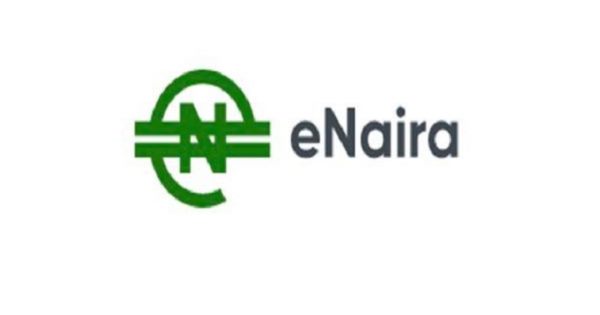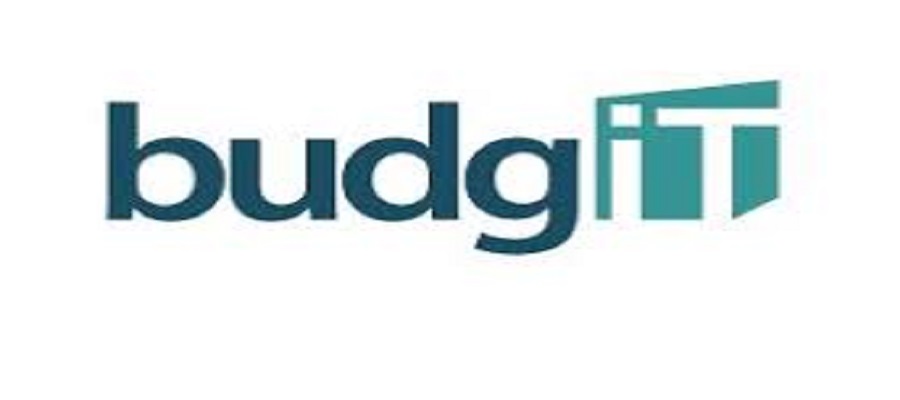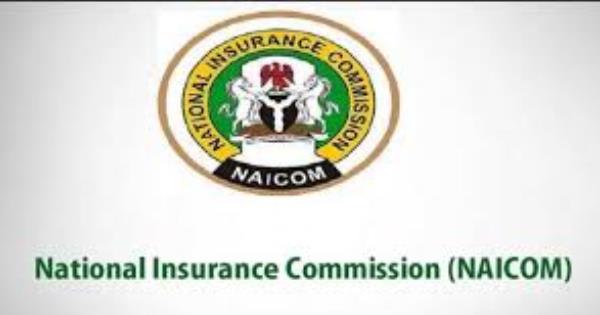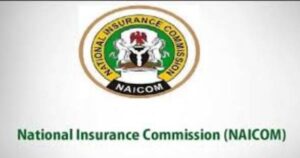E-Financial
eNaira: CBN Rallies PSPs, Fintechs to Deepen Adoption

The Central Bank of Nigeria (CBN) yesterday said it was working with key stakeholders in the payment system ecosystem to boost the adoption of its digital currency known as the eNaira.

The stakeholders, particularly Payment Service Providers (PSPs) and a community of fintech groups, after a one-day engagement with the apex bank in Lagos, resolved to partner to ensure more adoption of the CBDC in the country.
Speaking at the meeting, Mrs. Rakiya Mohammed,director, Information Technology Department (ITD), CBN, explained that the apex bank was neither competing with the Deposit Money Banks (DMBs) nor other actors in the Nigerian payment system environment.
Essentially, the engagement was in continuation of the bank’s strategy to bring all stakeholders on board what Mohammed described as a journey.
She said the CBN remained open to suggestions and innovation aimed at adding value to the eNaira and improving the user experience.
The CBN director urged the payment service providers (including the large community of fintech groups) to find more innovative ways to support members of the public, where possible, in the onboarding process and use of eNaira as well as develop solutions for offline eNaira functions including cards, wearables, USSD, among others.
While also admonishing the licenced PSPs to create additional use cases for the eNaira, she tasked licenced PSPs to create additional products and services across the full spectrum of the financial system using eNaira.
Mohammed further disclosed that the full implementation of the eNaira, which started with the onboarding of the banked, would be done in four phases, culminating in offline eNaira payments solutions, cross-border payment and interoperability of the eNaira with those of other central banks.
However, their taking turns, representatives of the different stakeholder groups welcomed the introduction of the eNaira and expressed support for its adoption and use.
They also made value-added proposals for the market and integration process to drive financial inclusion by bridging the gap between the banked and the unbanked.
Also, going forward, the CBN team and the different stakeholder groups agreed to meet periodically to review the progress made to enable more Nigerians access eNaira.
On the CBN team were the Director, Banking Services Department, Samuel Okojere; Director, Payment System Management Depart, Musa Jimoh; Director, Risk Management, Dr. Blaise Ijebor; the Director, Financial Policy and Regulations Department, Mr. Chibuzor Efobi; and the Special Adviser to the CBN Governor on Payment Systems, Mary Fasheitan.
The different groups present at the engagement were from Payment Service Banks, Switching and Processing companies; Mobile Money Operators; Payment Solution Service Provider; Payment Terminal Service Providers; and Super Agents.
Also present were representatives of the Chartered Institute of Bankers of Nigeria (CIBN); the Nigerian Inter-Bank Settlement System (NIBSS); Shared Agent Network Expansion Facilities (SANEF); and the Committee of banking Industry Heads.
CBN Governor, Mr. Godwin Emefiele, had said the eNaira would support a resilient payment ecosystem, encourage rapid financial inclusion, reduce the cost of processing cash, enable direct and transparent welfare intervention to citizens and increase revenue and tax collection. Also, he had said the eNaira would facilitate diaspora remittances, reduce the cost of financial transactions, and improve the efficiency of payments.
Emefiele added, “Therefore, the eNaira is Nigeria’s CBDC and it is the digital equivalent of the physical naira. As the tagline simply encapsulates, the eNaira is the same naira with far more possibilities.”
Meanwhile, as part of efforts by the federal government to make sure every eligible Nigerian own a bank account and be financially included, the central bank yesterday commenced the digital inclusion drive for woman and youths in Bayelsa State.
Introducing the scheme in Kaima, Kolokuma/Opokuma local government area of the state, the state Governor, Senator Douye Diri, advised rural dwellers in the state that the only way they could benefit from various governments micro-credit and empowerment programmes and be financially included was by having valid bank accounts.
The governor who encouraged the rural dwellers in the state to take advantage of the CBN financial inclusion drive to open their bank accounts, noted that the present administration in the state has various financial and empowerments programmes, and others in partnership with the federal government, which can only be access through a bank account.
Diri, who was represented by a Permanent Secretary in the office of the Secretary to the State Government, Mr. Anthony Orwells, said, “There are a number of empowerment programmes, a number of them the state government is in partnership with the CBN and other federal institutions while some of them are entirely by the state government.
“However, you will need a bank account to be financially included through a bank account, hence the need to encourage financial inclusion to ensure everyone including the rural dwellers benefits and is carried along in the scheme of things.”
In his speech, Yusuf Yila, director, Development Finance Department of the CBN, said the nation’s apex bank has discovered that most rural dwellers could not be captured for various empowerment initiatives because of bank accounts, which necessitated the financial inclusion drive.
Represented by Mrs. Augustina Osuya, head of Development Finance, CBN, Yenagoa branch, he explained that the financial inclusion drive was expected to, among other things, improve financial literacy and build awareness on the benefits of the use of digital financial services and contribute to increased access to payments, savings and credit enhancement opportunities for rural women and youth across the country leveraging digital platforms.
He pointed out that the scheme was aimed at empowering and bringing more women and youth across Nigeria into the finance ecosystem in line with the CBN digital financial inclusion project.
While calling on the rural women and youths to grab the opportunity to open their bank accounts, he urged financial institutions to join and take the exercise seriously to bring all financially excluded on board.
In her remark, the Woman Leader of Kaiama Mrs Tonbra Egbegi, commended the CBN for bringing the initiative to their doorsteps and saying that the drive will give the rural women and youth the opportunity to open their bank accounts conveniently without having to travel to the state capital.
E-Financial
GAIM 6: Fidelity Bank Rewards 10 Customers with N10m

Fidelity Bank Plc has announced the first set of millionaires in its Get Alert in Millions Season Six (GAIM 6) promo.

In an event held at the bank’s corporate office in Lagos and observed online, the bank revealed ten customers each won cash prizes of N1 million in an electronic draw supervised by regulatory agencies and members of the media.
Fidelity Bank initiated the GAIM 6 promotion on November 20, 2024, with the aim of encouraging a healthy savings culture.
Through this promotion, the bank will distribute a total of N159 million in cash prizes to reward its loyal customers.
Speaking at the first monthly draw of the promo in Lagos, Dr Ken Opara, promo chairperson and executive director, Lagos and South-West, Fidelity Bank Plc, represented by Mr. Jude Monye, regional bank head, Ikeja and directorate head, North Business of Fidelity Bank, noted that “GAIM promo emphasises the importance of maintaining a healthy savings habit among the bank’s customers.
The said this habit insulates them from economic shocks, enables individuals and families to navigate emergencies, and allows them to invest in their future.
According to Dr. Opara, “10 lucky winners were chosen via an electronic draw monitored by lottery regulators and each will receive the sum of one million each.
“The bank would disburse N159 million to its lucky customers between November 2024 and August 2025 when the grand finale of the promo would hold.
“Today, we have witnessed the first promo monthly draw and 10 winners have emerged from the six geo-political zones of the country. One winner emerged from the South West; two from Abuja; two from the South-South; South-East produced two winners; Lagos got two winners; and North Central had one winner,” he said.
Shedding light on how people can qualify for the draw, Dr. Opara explained that, “Both existing and new customers can win by simply topping their account with a minimum of N5,000 as every N5,000 saved guarantees a ticket in the draws and there is no limit to the number of tickets a customer can have).
Highlighting the benefits of driving saving culture through the Fidelity Bank GAIM 6 Promo, Dr Opara noted that, “The benefits of fostering a culture of savings extend beyond individual households.
“Through our GAIM promo, customers will enjoy free financial advisory services from the bank to help sustain their financial well-being.
“In the previous editions of the GAIM promo, we have successfully onboarded many new-to-bank customers while encouraging current customers to increase their savings.
“An increased savings leads to more substantial investments in education, healthcare, and infrastructure, driving economic growth. Fidelity Bank is renowned across Nigeria for helping individuals grow, businesses thrive, and economies prosper by prioritizing our customers’ financial well-being.
“This initiative has significantly contributed to the government’s National Financial Inclusion Strategy, which aims to increase the percentage of adults with savings accounts from 39 to 70 per cent by 2025.
“I encouraged those who have not yet opened a Fidelity Bank savings account to do so, via any of the bank’s channels, as the promo is opened to both new and existing customers,” he added.
On his part, Mr. Osita Ede, divisional head, Product Development, Fidelity Bank, noted that, “The bank planned to reward the customers before the Christmas celebration to support them in meeting their expenses but the draw is open to customers who have Fidelity Bank savings accounts and have grown their savings to N10,000 and above from the promo launch date of November 20, 2024.
Mr Tanko Olaseni, head, Monitoring Inspection and Enforcement, Lagos State Lotteries and Gaming Authority, commended Fidelity Bank for being transparent with the draw while noting that, the promo initiative would further boost the image of the bank and its profitability as savings culture is promoted among its customers.
E-Financial
BudgIT Queries Irregularities in FG’s Proposed 2025 Budget

BudgIT, a civic-tech organisation promoting transparency, accountability, and effective service delivery in Nigeria, has said that it has observed certain legacy issues with the federal government proposed 2025 budget.

BudgIT has therefore has called on the National Assembly to proactively address the irregularities, exercise its “Powers of the Purse” responsibly, allow robust public participation in the budget review process, and ensure that the approved budget reflects the needs and preferences of Nigerians through job creation, poverty reduction, and inclusive broad-based economic growth.
The organisation in a statement by Nancy Odimegwu, its communications associate, noted that a review of the performance of the Federal Government budget over recent years has revealed that the Federal Government often falls way off the mark in its macroeconomic assumptions, which pose serious fiscal risks leading to severe budget financing challenges, additional unforeseen government obligations, and a significant increase in public debt.
The government’s inflation projection of 15% in the 2025 fiscal year appears grossly unrealistic, it said, considering that inflation, which stood at 34.6% as of November 2024, has been driven not only by monetary factors such as exchange rate and money supply but also by the constant increase in food and energy prices—both of which the government has not created a clear roadmap to resolving in the short term.
While the oil price projection of $75 per barrel appears feasible given the global outlook of $70 to $73 per barrel, we strongly advise the National Assembly to resist the urge to increase the oil price benchmark to create fiscal space for their budgetary insertions, a practice observed in previous years.
“Recall that in previous years, BudgIT has identified several budgetary insertions made by the National Assembly that deviate from the federal government’s constitutional mandate and priorities and are assigned to MDAs that have neither the capacity nor the mandate to implement the inserted projects. In 2021, BudgIT observed that 5,601 capital projects were added to the Appropriation Bill during the review process by the National Assembly,” it said .
“In 2022, it increased to 6,462 projects across 37 Mother Ministries and 340 MDAs, while in 2024, 7,447 insertions amounting to a staggering N2.24 trillion were found in the budget. While the Constitution grants the National Assembly the authority to appropriate funds, it often modifies the Executive’s proposed budget to distort its original intent and disconnect it from the nation’s long-term development agenda. Many inserted projects usually lack proper conceptualisation, design, and cost estimation, undermining their effectiveness and feasibility. We believe that the legislature must exercise this power with the utmost responsibility. This responsibility, which cannot be overstated, entails ensuring resource efficiency, eliminating waste, and aligning budgetary decisions with the nation’s long-term economic development goals.
“Also, we have observed that the 2025 proposed budget breakdown submitted to the National Assembly for review and approval and published on the Budget Office website omits the breakdown of some MDAs, commissions, and councils, such as the National Judicial Council (₦341.63 billion), and TETFUND (₦940.5 billion). The budgets of over 60 government-owned enterprises (GOEs), including the Nigeria Ports Authority, Nigeria Customs Service, Nigerian Maritime Administration and Safety Agency (NIMASA), etc., were conspicuously absent from the 2025 Proposed Budget.
“Furthermore, a combined ₦2.49 trillion has been allocated to five regional development commissions (Niger Delta: ₦776.53 billion; South West: ₦498.40 billion; North East: ₦290.99 billion; North West: ₦585.93 billion; and South East: ₦341.27 billion) under the umbrella of personnel costs. This approach obscures the true nature of these commissions’ operational expenses. For context, the Ministry of Interior, responsible for overseeing the Nigeria Immigration Service, Nigeria Correctional Service, Nigeria Security and Civil Defence Corps (NSCDC), Federal Fire Service, and their governing board, has a significantly lower recurrent non-debt expenditure allocation of N648.84 billion. This amount covers personnel and overhead costs for the entire ministry and its agencies. Lumping development commission budgets under personnel costs raises concerns about transparency and accountability. It hinders proper scrutiny of how these funds are utilised and whether they effectively achieve their intended development objectives.
“More worrisome is the fact that the 2025 budget notably omits funding for the Lagos-Calabar Coastal Road, a capital-intensive infrastructure project. This omission implies that if funding for this project materialises, it will likely necessitate reallocating funds from other critical projects, potentially hindering their implementation and impacting the budget’s credibility. It is worth noting that President Bola Ahmed Tinubu’s recent pronouncement regarding the retirement package of military generals, which includes the provision of a bulletproof SUV, fully paid foreign medical treatment, $20,000 as estacode for medical trips, and payments for domestic help, contradicts his previous commitments to reduce the cost of governance and welfare packages to top-ranked public officials and civil servants. Such provisions not only inflate the budget and widen the fiscal deficit but may also demoralise lower-ranking military personnel, who lack adequate health insurance and retirement benefits despite their higher exposure to combat risks.
“As the National Assembly reviews the 2025 Proposed Budget, BudgIT appeals to the 360 Honourable Members of the Federal House of Representatives and 109 Distinguished Senators of the Nigerian Senate to prioritise national interest over personal or parochial considerations and ensure that the approved budget stimulates economic activities and macroeconomic stability, allocates resources to foster economic growth and development, equitably distributes resources to reduce poverty and inequality, and caters to the most vulnerable Nigerians.”
E-Financial
NAICOM Seeks Police’s Support to Enforce Third-party Motor Insurance

National Insurance Commission (NAICOM) has sought the support of the Nigeria Police Force to enforce Third-Party Motor Insurance in Nigeria. The Commissioner for Insurance/CEO, Mr. Olusegun Ayo Omosehin, made this request when he paid a working visit to the Inspector General of Police, Federal Republic of Nigeria, Mr. Kayode Adeolu Egbetokun, at the Force Headquarters.

The Commissioner for Insurance who congratulated the IGP on his notable achievements, particularly the recent licence acquisition for the Police Insurance Company, reminded the IGP of his earlier request for assistance in enforcing all compulsory insurance policies, including Third-Party Motor Insurance.
The CFI pledged to provide the necessary support to ensure seamless enforcement of third-party motor insurance across the country. To guarantee the success of this initiative, Omosehin emphasized the need for a mass awareness campaign and education of the Nigeria Police Officers.
In response, the IGP expressed his alignment with the CFI for insurance, acknowledging the compulsory nature of third-party motor insurance in Nigeria. He emphasized that violating this law is punishable, yet unfortunately, only 30 percent of vehicles in the country are insured.
The IGP highlighted the numerous benefits of having insurance coverage, stressing the importance of protecting lives and property.
He urged citizens to obtain at least a third-party insurance cover for their vehicles before driving on Nigerian roads.
To ensure compliance, the IGP announced that full enforcement of third-party motor insurance will commence on February 1, 2025.
Present at the meeting was the Deputy Commissioner, Technical, Dr. Usman Jankara; the Deputy Commissioner Finance &Administration, Mr. Ekerete Ola Gam-Ikon; Director Legal, Enforcement & Market Development, Dr. Talmis Usman; Director of Inspectorate, Mr. Bankole Ajebola; Senior Police Officers, and others.

 General News3 days ago
General News3 days agoNigeria Recovers $52.88m in Assets Linked to Former Petroleum Minister Diezani Alison-Madueke

 E-Business3 days ago
E-Business3 days agoCybersecurity Firm Warns of Phishing Threats Targeting Telegram Premium

 General News3 days ago
General News3 days agoTransform Your Health with QNET’s BELITE 123: The Ultimate Weight Management Solution

 General News3 days ago
General News3 days agoTikTok Announces Plans to Cease Operations in the U.S. by January 19, 2025

 E-Financial19 hours ago
E-Financial19 hours agoBudgIT Queries Irregularities in FG’s Proposed 2025 Budget

 General News20 hours ago
General News20 hours agoLagos State Sets Strict Deadline for 2024 Tax Returns Filing

 E-Financial20 hours ago
E-Financial20 hours agoNAICOM Seeks Police’s Support to Enforce Third-party Motor Insurance

 Telecom19 hours ago
Telecom19 hours agoSuspected Lakurawa Terrorists Kill 3 Telcoms Workers in Kebbi
























